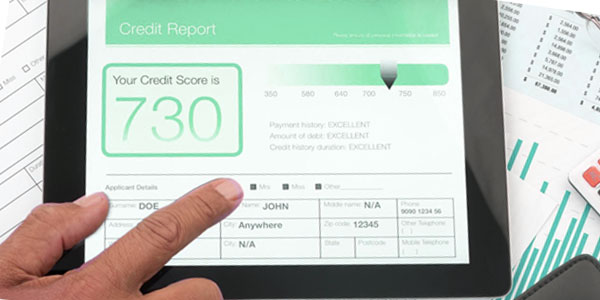A good credit score is of primary importance if you want to be eligible for future loans. Having a good credit score is not difficult if you can handle your finances wisely. The process of managing credit score is simple. You just need to handle your credit responsibly and avoid making any mistakes. A simple mistake on your part is capable of ruining your future prospects of acquiring credit. Credit cards also pose a problem of identity theft. You need to be careful in handling these issues if you want to avoid any identity theft. You should check your credit report at least 3 to 4 times a year so you can handle your credit better.
Below are 10 common mistakes that individuals often make. Consider these so you can avoid these and can ensure a good credit score for future:
- Defaulting on payments: Missing out payments is one of the most common mistakes. If you default on your payments or pay them after due date, it is sure to affect your credit scores negatively. Paying your bills late not only affects your credit score but also increases your debt with late fees and charges. These mistakes occur mainly due to carelessness. You should be careful while taking any new credit or agreeing to a debt. The payment history makes up for nearly 35% of your credit score. Thus in order to have a good credit score make sure that you will be able to meet the terms on time.
- Not being honest about your problem: Many people instead of making their situation clear, prefer avoiding the creditors and collectors. It is always advisable that you communicate and convince them about your financial situation. The more you avoid the more interests and fees get added to the existing balance. Convince them about your financial crisis and try negotiating a repayment plan with the creditor. This will help you to pay off your debt faster without destroying your credit score.
- Applying for multiple credit: Having multiple credit cards increases your chances of incurring more debts. The more cards you have your ability to purchase increases steadily. This leads to uncontrollable expenses that finally lead to debts. If you use too many cards at the same time, your score drops, because the creditors run a credit check on your report before lending. Such credit check lowers your score by 2-10 points.
- Defaults on Utility bills: If you forget to pay the utility bills on time it can hurt your credit score drastically. Utility bills like electricity bills, phone bills, etc is not normally listed on your credit report. However, when you default on these payments, the issue is handled by the collection agencies who further list them on your report. This can affect your score negatively to a considerable extent.
- Closing down your old accounts: Those credit cards which you have been using over a long time carry a considerably better balance and interest rates. Putting an end to these accounts can hurt your credit as the available credit is eliminated along with the interest rates on that card. Older cards often carry a good credit history. This history gets dismissed as and when you close down the account.
- Optimum utilization of cards: Using your credit cards to the maximum can affect your credit scores negatively. Usually the ratio between debt to available credit accounts for one third of your score. You need to maintain a minimum balance around 10% of the available credit. If you max out your credit cards your credit scores gets lowered by nearly 50-70 points.
- Co-signing on a account: If you co-sign on a credit document with a friend or relative, it can be a risky deal. If you co-sign on a document and any mistakes are made by your friend or relative, your credit score will also be affected negatively.
- Reckless spending: If you are inclined towards shopping and very often buy things impulsively. But such a habit can be harmful as it increases the debts that you owe. Buying things that you do not need just adds to your expenses. You may find it difficult to pay them off later as the amount becomes unmanageable. In order to avoid this it is better that before you go for shopping make a list of the things that you need. Stick to only those items and avoid any impulsive buy in order to avoid hampering your credit scores.
- Carefully consider any new offers: If you are getting a new card, read the fine prints carefully before selecting it. Many companies offer cards with discounts and special offers. However sometimes there may be some kind of loopholes attached to them in order to attract consumers. Read the details on missed payments and other fees carefully before you agree as these can hurt your score if you are not careful.
- Inability to locate mistakes: You should be careful in locating any mistakes on your credit report. If you find any mistakes on your credit report it to the credit bureau and get them corrected. If anything is not listed properly get them listed quickly else it will hurt your score immensely. Check your credit report regularly and remove any mistakes that you think can affect your credit score negatively.









